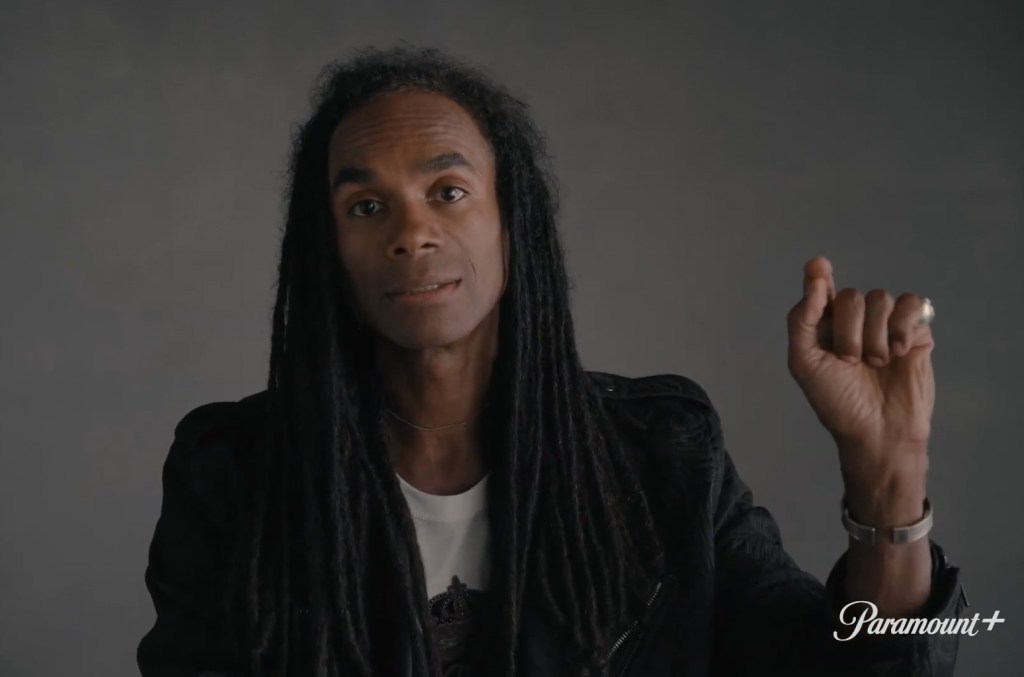The only group in the history of the Grammy Awards to have their golden gramophone revoked could pull off the ultimate redemption story if the stars align at next year’s broadcast. The upcoming Luke Korem-directed biopic Milli Vanilli has been submitted for consideration in the best film category at the awards slated to take place on Feb. 4 in Los Angeles more than three decades after the duo’s best new artist trophy was recalled by the Recording Academy.
“I actually had that vision four years ago when we began making this film,” Korem tells Billboard exclusively about the inspiration for the biopic that tells the full story of the duo’s rocket rise to fame and equally rapid descent into a music industry punchline; this writer appears in the film but was not involved in the production or marketing. “However, this time it’s not about whether or not they sang. This film is about the exploitation of two young artists – Robert Pilatus and Fabrice Morvan – at the hands of a greedy music industry. I think a lot of artists and musicians can relate.”
Milli Vanilli is among 94 films vying for a nomination for best music film, including Oscar-shortlisted David Bowie doc Moonage Daydream and Hallelujah: Leonard Cohen: a Journey, A Song, as well as films about Boygenius, Miley Cyrus, Kelsea Ballerini, Duran Duran, U2, Foo Fighters and live movies about Ellie Goulding, Guns N’ Roses, Imagine Dragons, Kendrick Lamar, Sam Smith and many more.
In an exclusive new trailer for the film that debuted earlier this year at the Tribeca Festival in New York, surviving member Fabrice Morvan solemnly admits that he and late partner Rob Pilatus were “lying” to the public before offering up a maxim in his native French: “Lies are taking the elevators while the truth takes the stairs.”
Morvan says in the trailer that he knew that at some point the truth would emerge and the pair’s charade would be uncovered after the group quickly rose to the top of global charts with a string of late 1980s hits from their smash 1989 Girl You Know It’s True album. They scored three Billboard Hot 100 No. 1s (“Blame It on the Rain,” “Girl I’m Gonna Miss You” and “Baby Don’t Forget My Number”) in 1989 and won the best new artist Grammy in 1990 before it was revealed that they didn’t actually sing on any of their massive hits, which were performed by a group of anonymous studio musicians.
Morvan and Pilatus danced to the songs on stage and did press as Milli Vanilli, but during performances they pretended to sing over pre-recorded backing tracks.
“They were going to catch us at some point or another,” Morvan says in the clip, a realization that left the friends wondering what they would do when the house of cards collapsed as the weight of the lie pressed down on them, reaching its peak when the new artist award was repossessed nine months after the Feb. 1990 Grammys; it was the first, and so far only, time a Grammy has been rescinded.
The preview also features heartbreaking testimony from Pilatus’ adopted sister, Carmen Pilatus, who says the crush of attention became a problem “pretty quickly” for her brother, as he tried to balance his painful childhood feelings of isolation and otherness with the unfiltered love he got from screaming fans. “To be loved, finally, to be loved… but having to lie to the people who love and idolize him that was for him a huge problem,” she says in the film.
Trying to blot out the pain of the constant deceit, Morvan says he and Pilatus drowned their sorrows in drugs and alcohol to “numb out,” with Pilatus admitting in an interview taped shortly before his death at age 32 in 1998 of an accidental drug overdose that he had frequent blackouts because of his out-of-control substance use.
Korem says he spent more than three years on the film in an effort to “expose the pop music machine in a way that no film has ever done,” with a focus on recognizing what Milli Vanilli gave the world: “great entertainment… And what better way than a Grammy? It would be the perfect ending to this wild story.”
Morvan tells Billboard that today he’s glad people found out about the ruse orchestrated by reclusive German producer Frank Farian, who struck gold a decade earlier with the disco pop group Boney M., which was also fronted by a dancer who did not sing.
“When people saw headlines about Milli Vanilli, they just thought of Rob and Fab,” Morvan says. “But now when they think of Milli Vanilli, they think of Rob and Fab, the music industry that was behind them, the producers, and [former head of their American label, Arista Records] Clive Davis — everybody had a hand in it and was a major part of organizing this whole thing as opposed to people believing that Rob and I did everything.”
Without naming names, both men said it’s “common practice” for acts to lip synch today to recreate studio magic on stage, to make sure, as Morvan says, “that people aren’t disappointed by not hearing what they heard on the record or on the radio.”
And while Rob and Fab (briefly) enjoyed the high life and the spoils of fame, Korem says that the price of not singing on the records was higher than either man imagined. “This deception cost Rob his life and nearly destroyed Fab,” he says. “Think about that. Someone came along to these two kids and said, ‘let me make you a star,’ and they said yes. They took a bite of the apple, and the world crucified them for it. For what? For doing something The Monkees and others had done? For dancing and providing entertainment? It’s ludicrous.”
Watch the new trailer for Milli Vanilli (which begins streaming on Paramount+ on Oct. 24) below.





